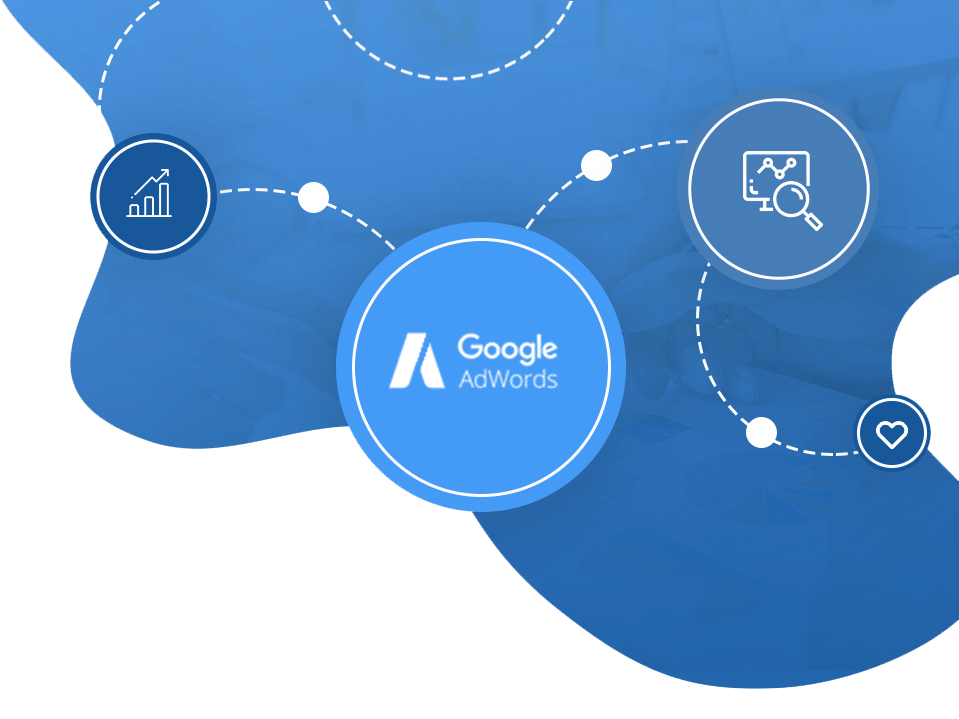A properly implemented Google Ads campaign can bring satisfactory results in a short period of time. But what does this correct implementation entail? Let’s see!
In addition to removing communication barriers, the Internet has given rise to new types of advertising, much more effective and profitable in terms of promoting products and services.
The objectives remain the same – branding, sales – instead, the big difference is represented by the better targeting of the audience, which means that the message reaches only the people directly interested in the products or services offered on the site being promoted. This leads, implicitly, to an increase in sales and, obviously, in the profit of the business in question.
Allowing ads to show ads based on users’ interest and the keywords they use in their Google searches, an Adwords campaign is perhaps the most effective way to bring interested visitors to the site, increase sales, and increase business awareness.
However, if we talk about Adwords, we are talking about diversity, and in order to be truly profitable, this promotion requires mastering those details that make the difference and eliminating as many negative factors as possible that could harm efficiency.
We will talk about some essential elements in setting up and optimizing a Google Ads campaign that lower promotion costs and generate quality leads.
KEYWORDS
- How do we choose keywords?
The words around which you build your promotion strategy influence both the cost and the success of the campaign, and highlight your ability to understand the intention of the audience you are addressing.
But don’t worry; At this stage, Google provides you with Google Keyword Planner, a tool that helps you identify the most searched keywords on various topics, but also to estimate costs and find out the competitive level.
It is true that, most of the time, the words that require higher costs are also the most profitable, but that does not mean that you have to limit yourself to them. Depending on the budget allocated to the campaign, choose the most important ones for you and decide on the type of match, ie how the user uses the keyword to activate your ad.
- [exact match]. Exact matching activates your ad only when someone does a search using exactly the phrase or keyword you used.
Example: let’s say you have an online store that sells shoes and you want to promote the category of shoes for women. The star expression of this segmentation is ‘women’s shoes’. Thus, if a user writes this phrase in Google, your ad will return to them as a result, but not if he writes ‘shoes for women’. For this activation you need a wider fit.
- broad match, + modified + broad + match and “phrase match”. These matches trigger your ad for a greater variety of keywords than the exact match, as well as for multiple variations of the keyword used.
- How do you use keywords in your ads?
Once the relevant keywords for the promoted service or product have been chosen, they must be grouped into ads. Each group will contain keywords and promotional ads related to a landing page, ie the page you want to send your user to.
Segment your ads into groups based on similar keywords. If you don’t segment your keywords into different ad groups, you’ll return the same ad to users, regardless of their search.
Some may think that this simplifies things, but the ad displayed must match the searched keywords. The closer your ad text gets to the keyword, the more likely it is that users will click on it, which actually interests you.
- How do you restrict irrelevant searches?
Exclude keywords that are irrelevant to the product or service you provide, using negative keywords. These can be added to both the campaign and ad group level.
Therefore, if you notice that users are accessing your ad even though they seem to be looking for something other than what you’re offering, exclude those terms from the ad group or even from the entire campaign.
Search Google Analytics data. When you find expressions that don’t bring you conversions, you can remove that word from the campaign, without having to stop all ads because it consumes money on irrelevant searches.
CONVERSIONS
Any action that is valuable to you, that a user performs on your site, is called a conversion. This includes purchasing products, subscribing to the newsletter, making a phone call, downloading the application and more.
Tracking conversions is very important because it shows you how effectively you set up your campaign and how well you invest your money in promotion.
Conversion Tracking is a free tool from the Google Ads platform that shows you what happens after a customer clicks on your ad. But to track conversions, you need to set up a tracking code to put on the site. You can do this with Google Tag Manager.
Moreover, turn your business goals into Google Analytics goals and import them into Adwords for even more detailed monitoring.
This is important because Analytics assigns each conversion to the last indirect base source. This means that if the last contact your user had with the site was through organic Google search, even if an ad was basically their starting point, the conversion will appear as coming from organic searches.
Since it was part of a user’s process to find your site and take action, AdWords should receive some credit. Not to mention that over time, it will help you better understand how effective your campaigns actually are.
BRAND
Many people believe that since they have a good position in organic searches, there is no need to advertise on their own name. And they focus all their attention on promoting their services and products, without trying to build brand awareness.
Although it is not mandatory to apply it, this strategy brings you more benefits than you think.
Here’s the thing. If you don’t bid for your brand, your competitors will definitely do it. They will use your name to create an ad group and target your visitors. This way, even if you are first in the organic results, your competitors will be above you with advertising.
That’s why it’s important to create campaigns for your brand. The faster users find you, the greater the chances that they will convert.
CONCLUSIONS
Regardless of the type of business you own, Google Ads can be an excellent way to promote yourself in the online environment. But you must know that there is no universally valid strategy to apply, because each business has its own particularities and objectives.
Once you get to juggle your Search campaign settings, increasing your results becomes a product of your ability to analyze and understand business, competition, market trends, and any other aspect of people’s behavior and choices on Google, which are constantly changing.





